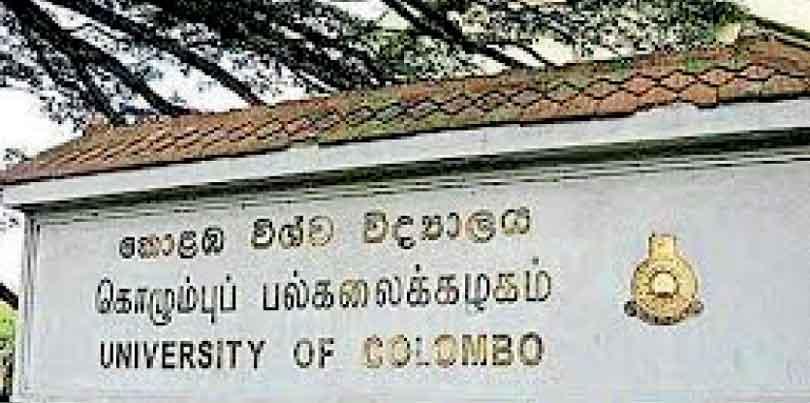Reply To:
Name - Reply Comment

 The year 2021 marks 100 years since the commencement of Humanities and Social Sciences education in the Sri Lankan state higher education system. The Faculty of Arts of the University of Colombo embraces this as a milestone of its ongoing journey, as a moment to mark and acknowledge the accomplishments of the staff and students and as a starting point of the next chapter in its history. The faculty’s approach to excellence in inclusive education encompasses not only what is taught—the knowledge, skills, and ethical responsibility needed to contribute to a diverse society- but also community outreach extended during its long journey. The long-term goal of the faculty is to provide the most empowering forms of learning to all its students and to promote and advance a culture of diversity, inclusivity, cultural competence and equity.
The year 2021 marks 100 years since the commencement of Humanities and Social Sciences education in the Sri Lankan state higher education system. The Faculty of Arts of the University of Colombo embraces this as a milestone of its ongoing journey, as a moment to mark and acknowledge the accomplishments of the staff and students and as a starting point of the next chapter in its history. The faculty’s approach to excellence in inclusive education encompasses not only what is taught—the knowledge, skills, and ethical responsibility needed to contribute to a diverse society- but also community outreach extended during its long journey. The long-term goal of the faculty is to provide the most empowering forms of learning to all its students and to promote and advance a culture of diversity, inclusivity, cultural competence and equity.
Over the years, the faculty has developed capacities to cater to both undergraduate and postgraduate studies and has excelled in both teaching and research. Additionally, several new subject areas have been introduced to further the scope of teaching and research in humanities and social sciences. Since the establishment of the faculty, teaching has been conducted in both Sinhala and Tamil mediums, while English medium instruction is also made available for students. Additionally, the faculty has pioneered the commencement of postgraduate studies in Sri Lanka. Several memorandums of understanding and other working arrangements have been signed with several reputed universities around the world and, annually, a number of students as well as teachers visit foreign universities for various study programmes. At present, the learning environment of the faculty is at a highly commendable state.
The Faculty of Arts has become a forum for intellectual debate in the country and will continue to render its service to the development of the Nation
The origin of the University of Colombo dates back to the establishment of the Ceylon University College (CUC) in January 1921. It was established at the “Regina Walauwa” which is now referred to as the College House. In April 1942, the University of Ceylon was established by the State Council, with Sir Ivor Jennings serving as its first Vice-Chancellor. By 1950, the University of Ceylon had a reputation as a unique and historic educational institute in the Commonwealth. Under the Universities Act No 16, 1978, the University of Ceylon became the University of Colombo. Since then, the University of Colombo has been developed as a national state research and teaching university that accommodates thousands of students through research and innovation, the University of Colombo has significantly contributed to national development. It has been ranked within the top 10 universities in South Asia and is identified as the top state university in Sri Lanka.
At present, the University of Colombo has nine Faculties with 41 Academic Departments, a Campus, a School, seven academic Institutes and seven centres.
The Faculty of Arts has 11 Department, four Academic Units, five Centres and an Institute. The student population of the faculty is around 4,500 and it has more than 100 well-qualified faculty members. Among them are several foreign faculty members and students. It is committed to attracting the best students from all over the Island. At present, the Faculty of Arts has become a forum for intellectual debate in the country and will continue to render its service to the development of the Nation as one of the prominent faculties of the University of Colombo. To commemorate the historic day of establishing the CUC, the Faculty of Arts has organised a range of events and initiatives. On January 21, 2021, the Exercise Laboratory of the Faculty of Arts will be declared open within the faculty premises, along with the newly established Support Centre for Students with Disabilities, reflecting its long-term commitment towards inclusive education. Additionally, a tree planting Campaign will take place highlighting its commitment towards preserving the environment for a better tomorrow.